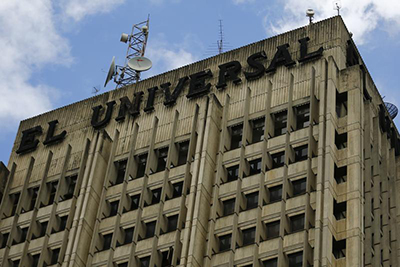John Otis
John Otis, CPJ's Andes correspondent for the Americas program, works as a reporter for NPR. He authored the 2010 book Law of the Jungle about U.S. military contractors kidnapped by Colombian rebels. He is based in Bogotá, Colombia
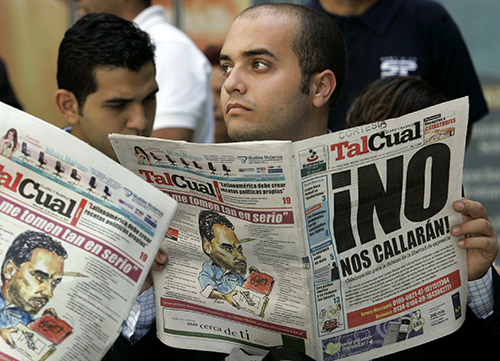
In Venezuela, Tal Cual under pressure but not defeated
Tal Cual, one of the few remaining Venezuelan newspapers critical of the government, is so shorthanded there’s often no receptionist on hand to let people in. Visitors must bang on the front door until someone in the newsroom notices. That can take a while because there are hardly any editors or journalists left.
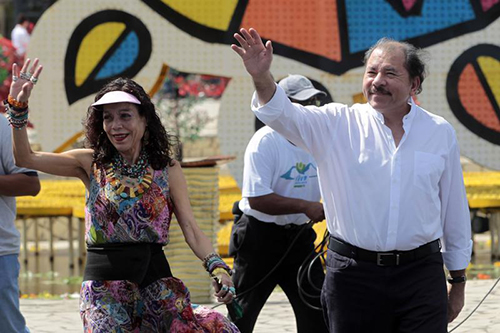
Long silence from Nicaragua’s president as first lady keeps press at arm’s length
It’s been nearly 3,000 days since Nicaraguan President Daniel Ortega last held a news conference, according to the opposition newspaper La Prensa. But when journalists complain about the lack of access to Ortega they often direct their ire not at the president but at the first lady, Rosario Murillo.
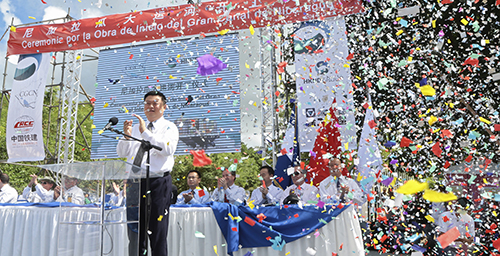
Reporters covering Nicaragua waterway project obstructed by lack of information
When Nicaragua began preliminary work on an interoceanic waterway designed to handle ships too big for the Panama Canal, some of the foreign correspondents who had flown in to cover the December groundbreaking were left high and dry.
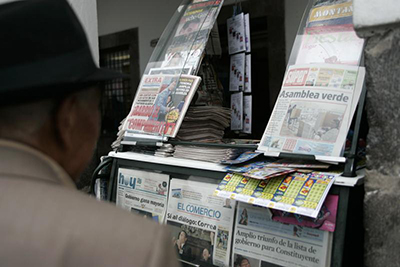
How Ecuador’s plans to make communications a public service is threat to free press
Attempts to amend Ecuador’s constitution to categorize communications as a “public service” has sparked a fierce debate, with one critic drawing comparisons to the way dictators such as Stalin and Hitler used the press as a propaganda tool, and supporters of President Rafael Correa’s government arguing that the proposed reforms will make journalism more accountable…
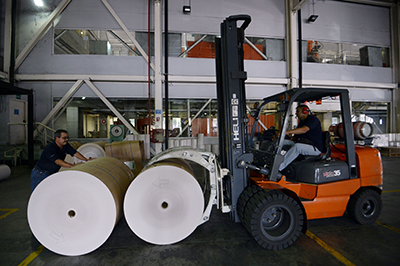
News rationed as Venezuela seeks to control newsprint imports
Venezuelan newspapers have traditionally handed out hundreds of courtesy copies in their lobbies and at hotels. But Correo del Caroní, an independent daily in the industrial city of Ciudad Guayana, treats every edition as if it were precious and now gives away just 14 copies, including one to the owner.
Life on the run in Amazon jungle for journalist charged with defaming president
For Ecuadoran journalist and political activist Fernando Villavicencio, life on the lam has meant wading through jungle rivers to avoid police checkpoints, dining on crocodile and monkey meat, and penning his latest book from a series of safe houses.
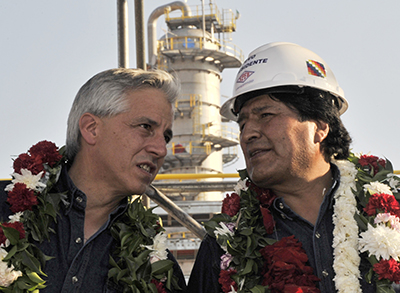
How Bolivia’s vice president used media to control his image–and that of the government
Álvaro García Linera’s savvy use of the media helped him make the leap from Marxist guerrilla to vice president of Bolivia. But critics contend that as the country’s second-highest elected official, García Linera is now using his substantial power to manipulate and control the Bolivian news media.
Bolivia’s president and state-run TV skip presidential election debate
President Evo Morales wasn’t the only no show at Bolivia’s lone presidential debate in the run-up to this Sunday’s election. State-run Bolivia TV, which has provided live coverage of every presidential debate since the late 1980s, also ignored the September 28 candidate forum.
Journalist investigates Bolivia’s ‘silent campaign’ for editorial control
At a bizarre news conference in April, Bolivia’s Communications Minister Amanda Dávila claimed that journalist Raúl Peñaranda, who was born in Chile, represented a dangerous “beachhead” for Chilean interests trying to deny landlocked Bolivia access to the Pacific.
